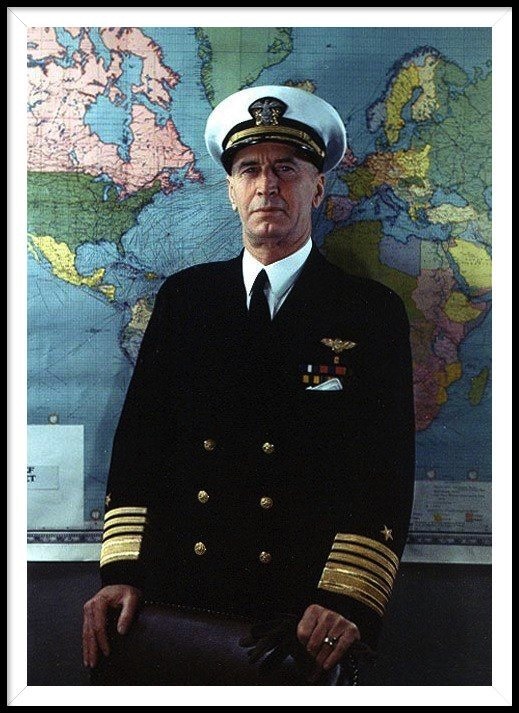
Ernest J King served as the Chief of Naval Operations during World War II. King was only the second person in history to have earned the rank of Fleet Admiral, and he left a nearly-unparalleled legacy on the history of the service.
Last week in our Thursday Tidings we looked at President Truman’s reflections on the Atomic Bomb. This week we are sharing Admiral King’s reflections on other technological advances during the war.
_________________________
Here is an excerpt of some of his analysis:
In December 1941 the United States faced seasoned enemies, who not only had long been preparing for war but who had actually been waging it for several years. Within the limited facilities and means available throughout the years of peace, the United States Navy had, however, equipped itself with weapons the equal of, or superior to, those of other navies and had laid the groundwork for still further development. During the war the science and industry of this country and our allies were mobilized to apply existing scientific knowledge to the perfection of these weapons and the development of new and more deadly means of waging war. As a result the United States Navy was able to maintain the technical advantage over the navies of our enemies, which contributed so materially to the outcome of World War II.
The means of accomplishing this were not so much directed towards making new discoveries, as towards the exploitation of the skills and techniques which civilian scientists had already cultivated in years of peace. When war appeared imminent, the War and Navy Departments and the National Academy of Sciences gave close attention to the most profitable manner of utilizing the strength of American science in military and naval research. It was decided to attempt a solution involving the maximum flexibility and initiative, in which the fundamental principle would be cooperation between science and the armed forces, rather than to bring the scientists into military and naval laboratories, as was done in England. The principle proved thoroughly sound.
_____________________________
What do you think about his analysis? Was King correct in his commending the separation between civilian scientists and the military complex? Have we drifted from this practice today? Let us know on our website post.
You can read the rest of King’s reflections on the scientific advancement of the US Military by clicking the link below:

